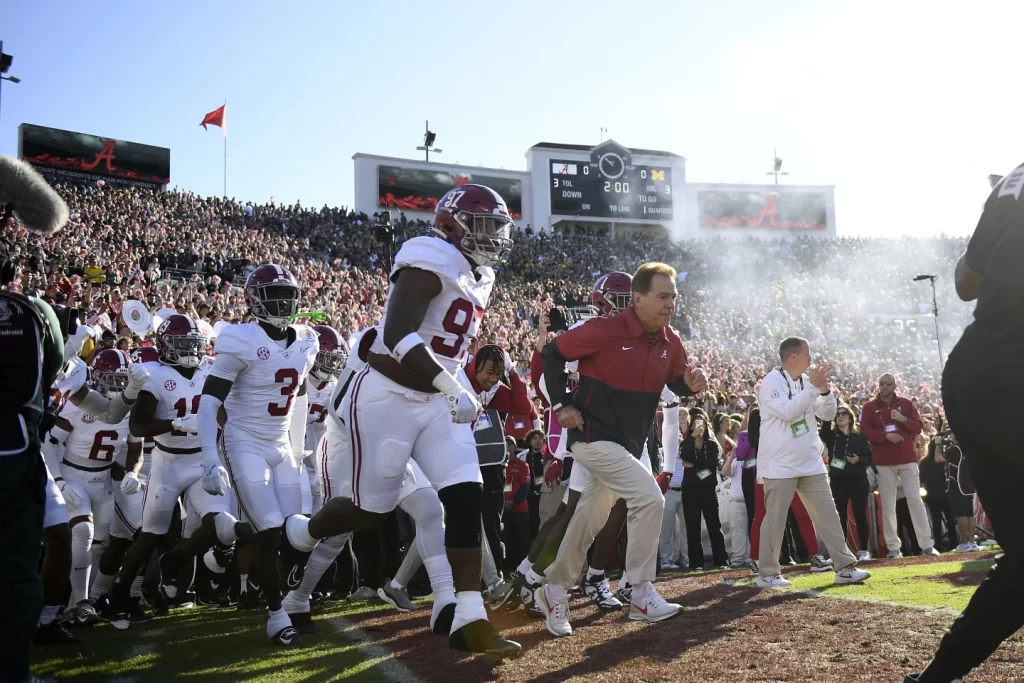
Two years ago, Nick Saban sat at the head of a long, cluttered table in the meeting room adjacent to his office and talked about how college football was rapidly changing in ways that would challenge the process he used to build the Alabama dynasty.
“Whether we’re recruiting you or whether you’re on our team, your focus should be on development,” Saban told the AP in March 2022. “It’s my job is to create a platform where you have a chance to develop and be successful as a person and as a student and as a player. I’d like to continue to do that.
“If that’s the case, you’re going to create more long-term value for yourself. You’re going to graduate. You’re going to have a better chance to develop as a football player and play at the next level. We want to continue to focus on development of players.”
They have have all talked about how the evolving landscape of college sports — with players being paid through name, image and likeness deals and almost unfettered transfers — has changed the profession they love.
“To me, if you choose to coach, you don’t need to be complaining about all that stuff. You need to adjust to it and adapt to it and do the best you can under the circumstances and not complain about it. Now, I think everybody is frustrated about it,” Saban told ESPN. “But this ain’t about that. We’ve been in this era for three years now, and we’ve adapted to it and won in this era, too. It’s just that I’ve always known when it would be time to turn it over to somebody else, and this is that time.”
Saban has not won a national title since 2020, but the last two seasons his Crimson Tide went 24-4, won a Southeastern Conference title, snapped Georgia’s 29-game winning streak and took national champion Michigan to overtime in a College Football Playoff semifinal.




